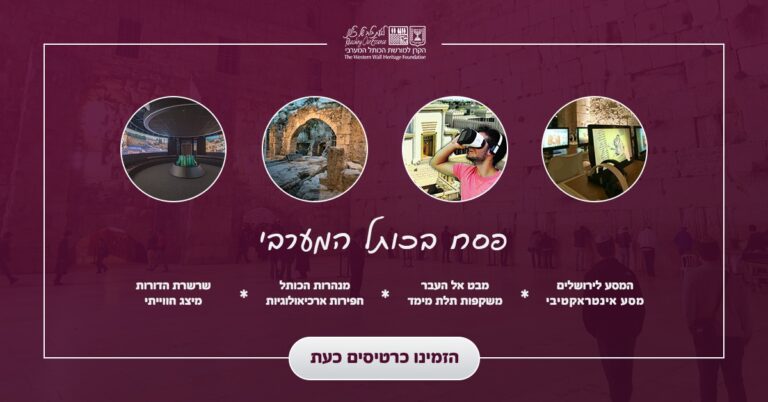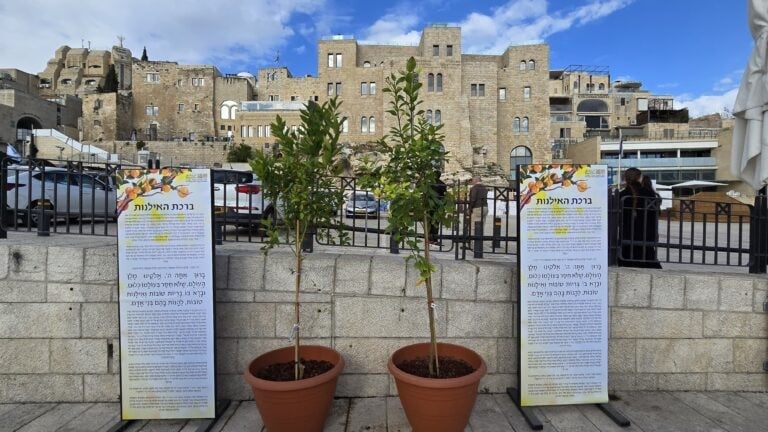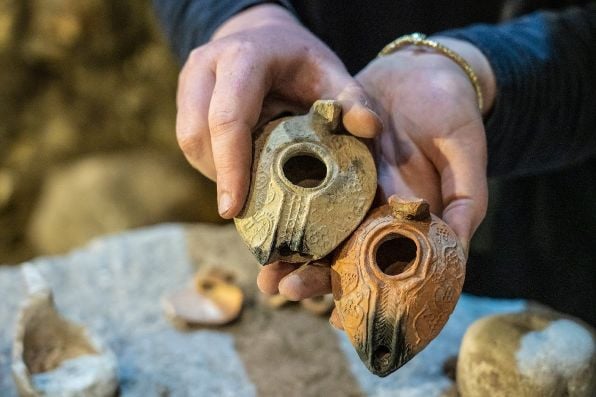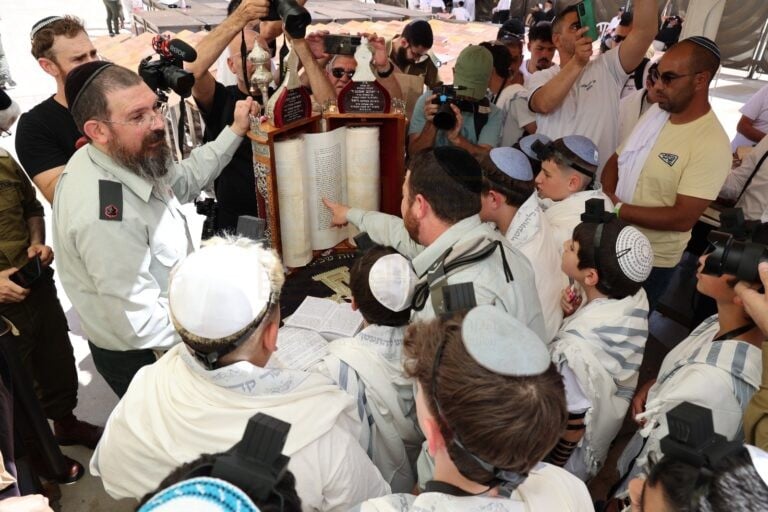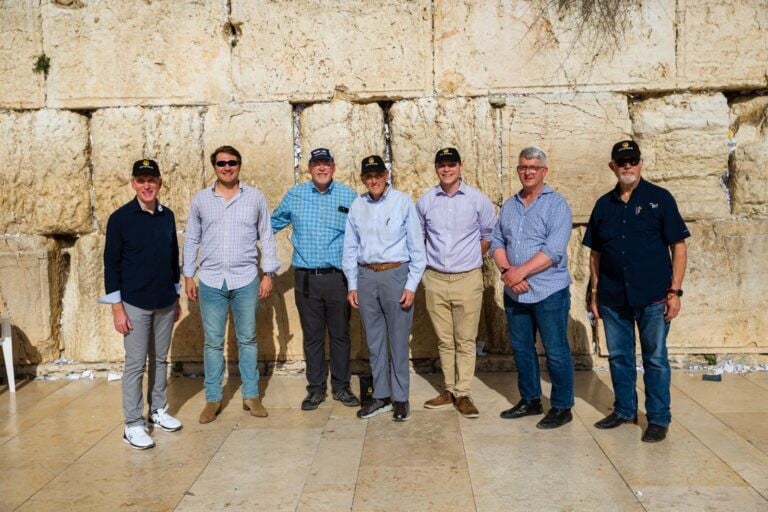On this night, we will all sit around the holiday table and fulfill the festival’s unique commandments and traditions: eating matzah and bitter herbs, drinking four cups of wine, and telling the story of the Exodus from Egypt. The Exodus is an event that accompanies the Jewish nation and each individual Jew throughout life. Every day, in the Kriyat Shema recited in the morning and evening, we add a section remembering the Exodus from Egypt; in kiddush on Friday evening and holidays, we say – in memory of the Exodus from Egypt. Once a year, we do not suffice with mentioning the Exodus from Egypt, but retell the story of our nation’s genesis in detail. This is a special commandment given in the Torah for this night: Telling the story of the Exodus from Egypt.
What is the essential part of this story? Of course, the liberation from slavery to freedom. Our ancestors were slaves in Egypt working in hard labor, enslaved to Pharaoh, the Egyptian king. G-d sent Moses to generate a series of miracles and wonders that ultimately led to the Jewish nation’s liberation. This is the structure of the story we tell. First, we describe in detail the difficult hardships suffered during the enslavement in Egypt, then we move on to describe the process of redemption and liberation. Finally, we thank G-d for the redemption and recite the chapters of Hallel that praise G-d.
We illustrate the story through the night’s special commandments. We eat bitter herbs to remind us of our ancestors’ bitter time in Egypt; we eat matzah as a reminder of the speed in which they left Egypt; and we drink four cups of wine and sit leaning comfortably as a symbol of the freedom we were privileged to attain.
Leil Haseder was set for the 15th of Nissan since that was when the Exodus from Egypt occurred thousands of years ago. Through the story and the illustrations, we relive that moment and awaken the internal movement from slavery to freedom. Though thankfully, slavery hardly exists in the western world, internal enslavement to needs satisfaction and the pursuit of pleasure exists in this imperfect world in which we live, perhaps even more than ever. Economic welfare and accessibility have created a situation in which a person can be busy chasing pleasure, without ever gaining a sense of satisfaction or fulfillment. This internal enslavement makes life devoid of significance and makes happiness further from reach.
The exodus from slavery to freedom means that a person is no longer confined by his desires or the lowly needs that attract him. A free person is one who can say to himself, “I have values and they overcome the attraction.” A person who can control himself is one who is free. A person who can live in a dynamic of giving, rather than taking and drawing from others, is one who is free. A person who has the courage to leave his comfort zone and search for the meaning and purpose in life is one who is taking his first steps on the path to freedom.
The Jewish nation was liberated from slavery thousands of years ago. But the journey to freedom continues. If we ask ourselves how to go forward in this journey, we find the answer from our sages who said, “there is no free individual, except for he who occupies himself with the study of Torah” (Chapters of the Fathers 6, 2). Learning Torah directs us in how to actualize the higher aspects of our character rather than being enslaved and tied to satisfying needs.
On this special night, Leil Haseder, every individual in the Jewish nation is called upon to see himself as though he himself left Egypt. This is an opportunity, a special time, when we get Divine assistance in being liberated from slavery in order to get a taste of true freedom, spiritual freedom, that leads to a life of true happiness.
